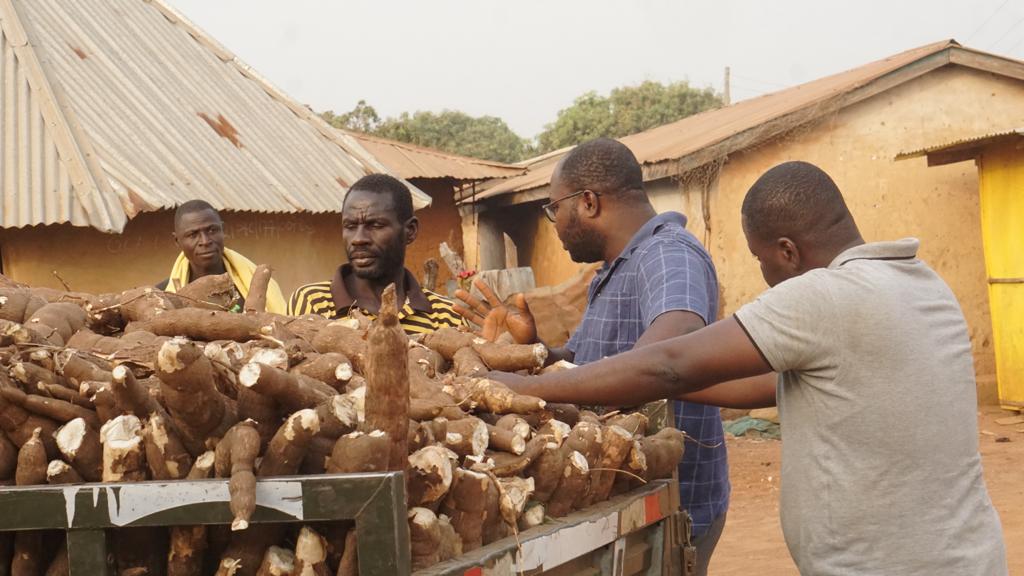
Cassava, a humble root vegetable, has transcended its traditional role as a dietary staple. In this article, we delve into the multifaceted uses of cassava, exploring its applications in households and industries. We’ll uncover why cassava has earned the moniker “white gold” and why there’s an increasing need for its commercial cultivation.
Domestic Utilization of Cassava
2.1 Culinary Applications
Cassava is a culinary chameleon, adapting to various dishes globally. From cassava fries to traditional cassava-based meals, its starchy versatility has made it a staple in households worldwide.
2.2 Nutritional Value
Beyond its culinary appeal, cassava is rich in nutrients. It serves as a source of energy and provides essential vitamins and minerals, making it a valuable addition to a balanced diet.
2.3 Medicinal Uses
Cassava has a history rooted in traditional medicine. With potential health benefits ranging from digestive aid to skin health, it contributes to holistic well-being beyond its role as a food source.
Cassava in Industries
3.1 Ethanol Production
Cassava’s high starch content makes it a prime candidate for ethanol production. The fermentation of cassava sugars yields ethanol, a key player in various industrial applications, including biofuel.
3.2 Textile and Paper Industries
Industries such as textiles and paper leverage cassava starch as a sizing agent. Its adhesive properties enhance the strength and quality of textiles and paper products.
3.3 Pharmaceutical Applications
Cassava extracts find application in the pharmaceutical industry. Compounds derived from cassava are under scrutiny for potential therapeutic uses, showcasing the plant’s diverse contributions.

Why Cassava is Called the White Gold
4.1 Economic Significance
Cassava’s economic impact is profound, earning it the moniker “white gold.” As a cash crop, it generates income for farmers and supports economies, particularly in tropical regions.
4.2 Versatility and Resilience
Cassava’s ability to thrive in diverse climates and challenging conditions adds to its allure. Its resilience contributes to food security and economic stability in regions facing agricultural challenges.
4.3 Global Demand
The increasing global demand for cassava products, coupled with its adaptability, has elevated its status. From food to industrial applications, cassava caters to a wide range of markets.
The Need for Commercial Cassava Farming

5.1 Meeting Growing Demands
With the rising demand for cassava, there’s an imperative for commercial farming. Large-scale cultivation ensures a stable supply chain, meeting the demands of industries and consumers alike.
5.2 Economic Empowerment
Commercial cassava farming not only addresses food and industrial needs but also fosters economic empowerment. It creates job opportunities, supports local economies, and enhances livelihoods.
5.3 Research and Development
Investing in commercial farming facilitates research and development in crop improvement. This enhances crop yield, quality, and resistance to pests and diseases, ensuring a sustainable future for cassava cultivation.
Conclusion
In conclusion, cassava’s journey from a kitchen staple to an industrial powerhouse highlights its versatility. As the white gold, it plays a pivotal role in economies, industries, and households. The need for commercial cassava farming is evident, ensuring a resilient supply chain and sustainable future for this remarkable root.
Frequently Asked Questions (FAQs)
Q: Is cassava safe for individuals with gluten sensitivity? Cassava is naturally gluten-free, making it a safe and versatile option for those with gluten sensitivity.
Q: How is cassava utilized in biodegradable packaging? Cassava-based bioplastics are derived from cassava starch and offer a sustainable alternative to traditional packaging materials.
Q: What makes cassava resilient in adverse conditions? Cassava’s adaptability to diverse climates and soils, coupled with its hardiness, allows it to thrive in challenging agricultural conditions.
Q: Why is cassava considered a cash crop? Cassava’s economic importance as a versatile crop contributes significantly to income generation, making it a valuable cash crop.
Q: How does commercial cassava farming support research and development? Large-scale cultivation of cassava provides the resources needed for research and development, leading to advancements in crop improvement.
